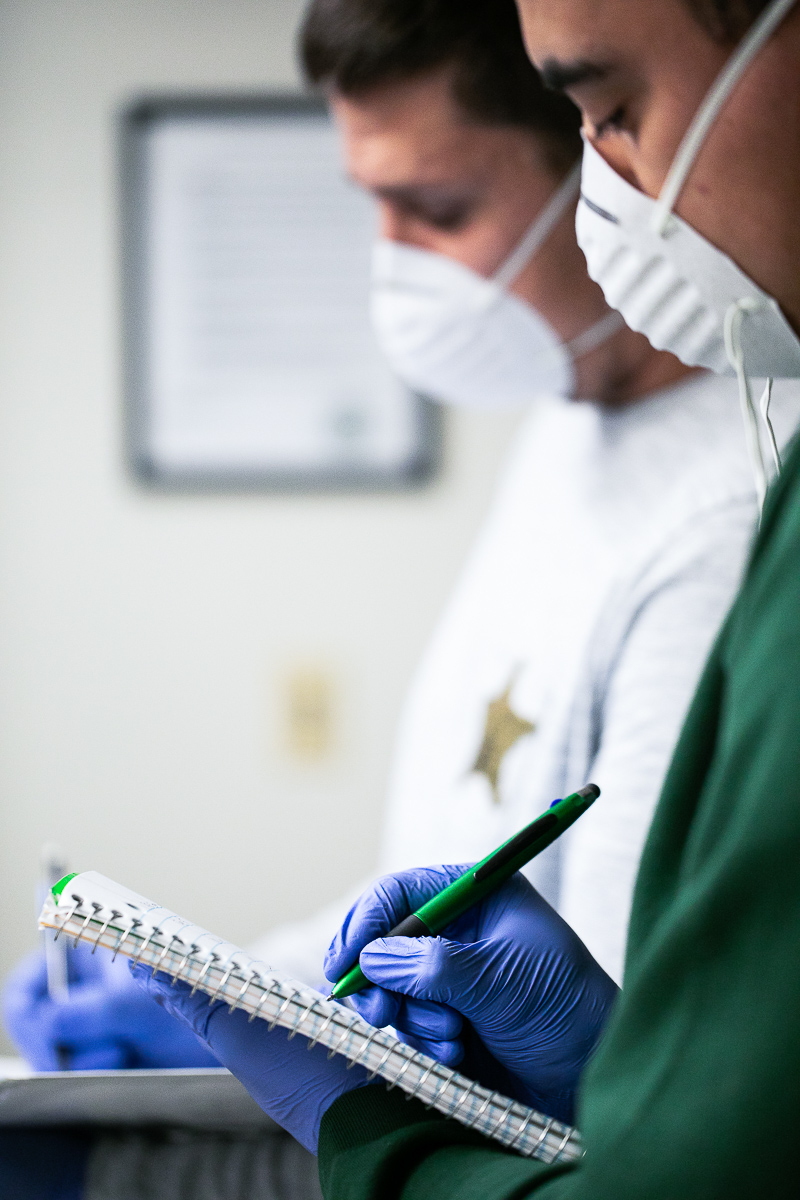By Ahmed V. Ortiz
A grant-funded program meant to better prepare law enforcement personnel to serve Latinx/Hispanic communities is scheduled to launch next fall in the University’s Department of World Languages and Literatures.
Sac State will offer the Criminal Justice Spanish Certificate program for students majoring in criminal justice professions beginning in Fall 2021. Grant funding of $340,000 will come from the U.S. Department of Education Undergraduate International Studies and Foreign Language (UISFL) program.
 Sacramento State and CSU San Bernardino will split a $340,000 U.S. Department of Education grant to establish Criminal Justice Spanish certificate programs scheduled to begin operating in Fall 2021. (Sacramento State/Andrea Price)
Sacramento State and CSU San Bernardino will split a $340,000 U.S. Department of Education grant to establish Criminal Justice Spanish certificate programs scheduled to begin operating in Fall 2021. (Sacramento State/Andrea Price)The three-year grant was written as an inter-campus work that included Professor of Spanish María Mayberry in collaboration with Carmen Jany, a CSU San Bernardino professor of Spanish and Linguistics, and Nerea Marteache Solans, a CSUSB associate professor of Criminal Justice. The two CSUs partnered to develop the certificate program.
The program is an effort to address what is seen as an urgent need to cultivate more linguistically and culturally prepared law enforcement workers to serve Latinx/Hispanic people, who represent the state’s fastest-growing and largest minority group.
“When working with any community, it is very important to understand their culture. And this is what this program is about,” Mayberry said. “It will be very beneficial to our students in criminal justice fields, as it will prepare them with the specialized linguistic skills and cultural understanding that they will need as future criminal justice professionals in the greater Sacramento region.”
Both campuses will develop the certificate program, which will be offered to undergraduate Criminal Justice majors and minors in consultation with Criminal Justice faculty and professionals. The instructional materials and culminating international experience in a Spanish-speaking country will be developed jointly, while program implementation will vary slightly between the campuses: Sac State will adapt two current courses and develop four new ones, and CSUSB will develop three new courses and adapt four.
Mayberry said a primary focus of this grant, which will be shared by the two universities, is to develop three specialized teaching materials: a second-year Spanish language multimedia e-book; a third-year multimedia e-book that includes specialized terminology and case studies for criminal justice professionals; and a third year-specialized Hispanic culture multimedia e-book. Each will include authentic materials from Spanish-speaking countries.
All of the materials are designed to help participants develop the vocabulary, cultural awareness, and speaking and listening skills needed to better serve Latinx/Hispanic communities, in particular individuals with limited English proficiency (LEP).
“With no access to an interpreter, many LEP people cannot communicate with or be understood by judges, clerks, or sometimes even their own lawyers,” said Mayberry, who also co-wrote a grant for a similar collaborative project with CSUSB, the Certificate Program in Spanish for Healthcare Professionals (HEALS).
Latinx and Hispanic populations in California grew 55% between the 2000 and 2010 Censuses, Mayberry said, making them the state’s fastest-growing minority. A July 2019 Census Bureau estimate suggests Latinxs/Hispanics compose 39.4% of the state’s population, making them the largest demographic plurality.
Steering subcommittees will collaborate at each campus to develop the program. They will include Criminal Justice faculty and professionals who will provide discipline content and background on the needs of students in their fields. The University’s steering subcommittee includes Mayberry and Mercedes Valadez and Ricky Gutierrez, professors in the Department of Criminal Justice, and Professor Jonathan Fleck from the Department of World Languages and Literatures.
The program will feature a 135-hour internship with international and a local options. Mayberry said CSUSB has taken the lead in creating a memorandum of understanding with a university in Spain. Contingencies for a California location are in place in case coronavirus-caused travel restrictions or concerns remain in effect when the program begins, Mayberry said.
Editor's note: Because of an editing error, an earlier version of this story incorrectly identified which department will be home to the Criminal Justice Spanish Certificate program. It will be in the University’s Department of World Languages and Literatures.
